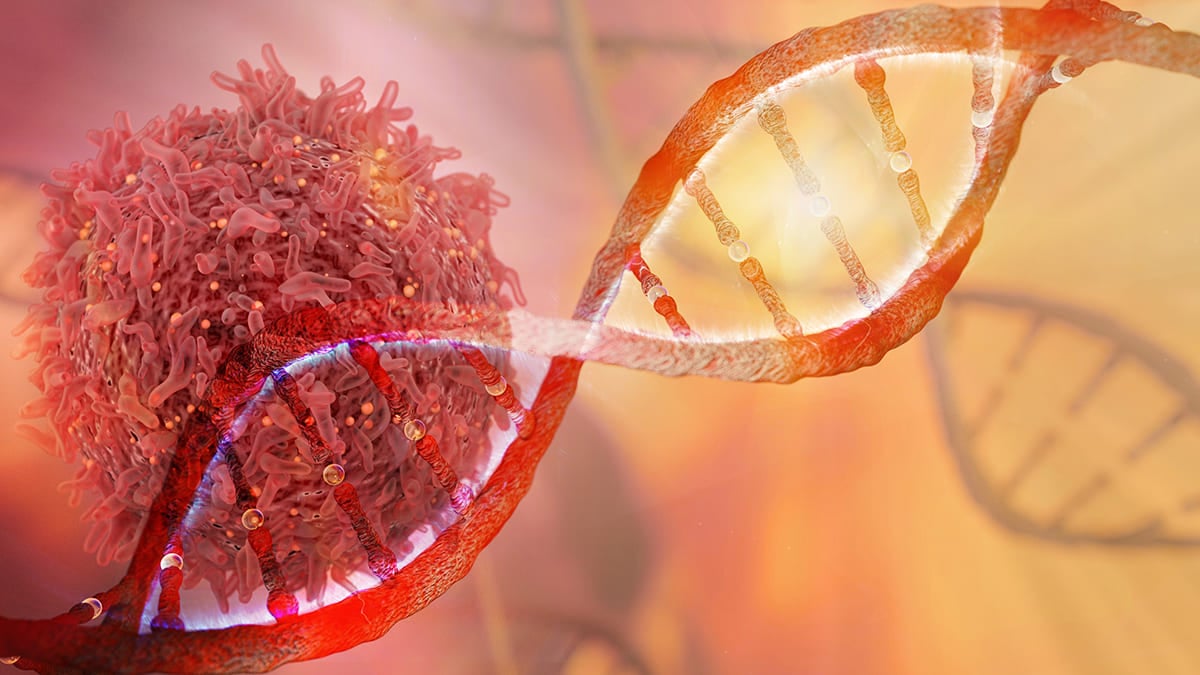
COMPREHENSIVE GENOMIC PROFILLING Personalized Cancer Genome Sequencing
Increase precision in cancer treatment
By personalized cancer genome sequencing
The Role of Precision Medicine in Cancer Treatment
Current cancer treatment has evolved to focus on personalized medicine to find the right treatment based oncogenic gene testing. By sequencing a panel of potential genetic mutations that lead to cancer, doctors can choose targeted therapy or immunotherapy for each individual patient based on Comprehensive Genomic Profiling (CGP). Using precision medicine is a novel medical service that has been adapted to use genetic mutation to predict disease occurence, diagnosis, and treatment. This allows patient treatment to be precise and more personalized.
Understanding Cancer Genome Sequencing
Cancer genome sequencing is a panel of tests designed to find genetic mutations that are related to the treatment or prediction of cancer. It covers major mutations that are related to targeted therapy or immunotherapy, diagnosis, and prediction based on the discovery of the mutation. In some cases, the objective and indications are to assess the response to targeted therapy.
Types of Genetic Mutation Detection for Cancer Treatment
There are two types of mutation detection for cancer treatment:
- Single-gene test
- Comprehensive genomic profiling (CGP)
Understanding Comprehensive Genomic Profiling (CGP)
Comprehnsive genomic profiling (CGP) is a way to test multiple genes at one time.

Benefits of Comprehensive Genomic Profiling (CGP)
Benefits of CGP is that it gives a complete picture for the current targeted therapeutic drugs. There is no need to wait to test one gene at a time in the same order as current treatment choice, which is different from single-gene test.
Types of CGP
There are several panels of cancer genome sequencing, such as MammaPrint and Oncotype DX, which are specific for mutations related to particular tumors, such as breast cancer or colon cancer. Doctors can use the information to predict the course of disease and choose treatment regimen based on each person’s genome. This type of profiling can use the same tissue as the biopsy acquired for diagnosis without the need for additional procedures. Nonetheless, if there is not enough cancer cells or samples, patients may need to have another biopsy to get more cancer samples for profiling.
Furthermore, some CGP panel can be performed on tumor biopsy or blood samples. Plasma cell-free DNA can be obtained to find mutations in the cancer cells. However, this method is an alternative method in case that adequate biopsy cannot be collected or for treatment follow-ups only.
Advantages of CGP over Single-Gene Test
CPG can find various mutations in one test. As the name implies, it gives a comprehensive understanding of each patient’s cancer cells so that multiple targeted therapy can be considered.
Although CGP costs more than single-gene test, patients can get comprehensive results faster. Single-gene test may need to be performed multiple times to find the target mutation, which means that in the long run, CGP will be more cost-effective and patients can also receive suitable treatment sooner.
How is CGP Useful in Cancer Treatment Plan?
CGP is a comprehensive test for treatment plans using targeted therapy or immunotherapy. The test can reveal indications whether the patient will respond to targeted therapy or not.
Why CGP at Bangkok Cancer Hospital Wattanosoth?
Bangkok Cancer Hospital Wattanosoth is ready to offer CGP with world-class standard.
- We have standard assessment and choose labs that are trusted and have internationally-accepted CGP panels.
- We have personalized cancer medicine specialists who can offer pre-test couseling.
- We have mutlidisciplinary specialists that meet during Biomolecular Board Conference to interpret the results and plan treatment for patient.
Design your life with your own genome. Plan your health to find the risk of cancer.
Reference
-
Millner, L. M., & Strotman, L. N. (2016). The future of precision medicine in oncology. Clinics in laboratory medicine, 36(3), 557-573.
-
Jørgensen, J. T. (2019). Twenty years with personalized medicine: past, present, and future of individualized pharmacotherapy. The oncologist, 24(7), e432-e440.
-
Elemento, O. (2020). The future of precision medicine: towards a more predictive personalized medicine. Emerging Topics in Life Sciences, 4(2), 175-177.
-
Hoeben, A., Joosten, E. A. J., & van den Beuken-van Everdingen, M. H. J. (2021). Personalized Medicine: Recent Progress in Cancer Therapy. Cancers, 13(2), 242.
-
Helland, Å., Russnes, H.G., Fagereng, G.L. et al. (2022). Improving public cancer care by implementing precision medicine in Norway: IMPRESS-Norway. J Transl Med 20, 225
-
The American Cancer Society. Precision or Personalized Medicine. https://www.cancer.org/treatment/treatments-and-side-effects/treatment-types/precision-medicine.html. Retrieved on 15 Mar 2023.